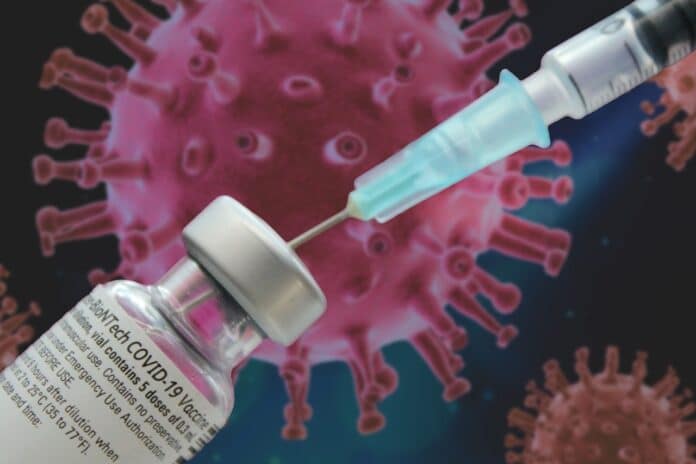A team led by Weill Cornell Medicine, the University of Wisconsin-Madison, Scripps Research, and the University of Chicago discovered an antibody that seems to block infection by all dominant variants of the virus that causes COVID-19, including the most recent, omicron. The discovery may lead the way for more effective vaccines and antibody-based treatments.
Dr. Patrick Wilson, a member of the Gale and Ira Drukier Institute for Children’s Health and the Anne E. Dyson Professor of Pediatric Research, and his colleagues tested antibodies produced from patient blood samples against successive forms of the virus. S728-1157, one of these proteins, was found to be particularly effective at neutralizing older forms and seven subtypes of omicron.
Dr. Wilson said, “The pandemic is winding down, but the virus is around for the long haul. If not well controlled, it could cause annual epidemics. This antibody and the insight it provides could help us avoid yearly surges of COVID-19 or if there is another coronavirus pandemic.”
The SARS-CoV-2 virus, which causes COVID-19, acquires new mutations as it replicates in the cells of the people it infects. These mutations are the starting point for new varieties, some of which can partially resist vaccinations and antibody-based treatments created to fight the original virus.
While many variations have emerged, only a few have the potential to impact infections worldwide significantly. One of these is omicron, which first appeared in November 2021. One of its variants, identified as XBB.1.5, predominated in the United States as of mid-March.
Dr. Maria Lucia Madariaga, an assistant professor of surgery at the University of Chicago, collected blood samples from persons recovering from COVID-19 early in the pandemic before the variations arose. As part of the immune response to the virus, the immune system produces proteins known as antibodies, which bind to specific portions of the virus, preventing it from infecting cells and directing the immune system to destroy it.
Dr. Wilson’s group collected blood samples from persons recovering from the virus early in the pandemic before the variants emerged. Dr. Maria Lucia Madariaga took blood samples from people recovering from the virus.
Dr. Siriruk Changrob, co-first author, and colleagues at Weill Cornell Medicine investigated 12 SARS-CoV-2 variants, including the original virus.
One antibody, S728-1157, stood out for its capacity to interfere with omicron. Their colleagues at the University of Wisconsin-Madison School of Veterinary Medicine discovered that therapy with this antibody reduced or eliminated the amount of the original, delta, or omicron virus in the animals’ noses and lungs.
Other Scripps Research researchers examined the structure of the antibody bound to the spike to determine where it bound and why omicron’s mutations did not interfere.
Their findings show that S728-1157 could serve as the foundation for a much-needed alternative to traditional antibody-based therapy. The arrival of variations, particularly omicron, has rendered many of these monoclonal antibody therapies ineffective.
Dr. Changrob said, “The take-home message here is that the next generation of vaccines should try to stabilize the spike in a more open position.”
The findings could lead to the development of novel vaccines that use the spike protein to stimulate antibody production. The group discovered that When the immune system comes into contact with spikes in an open conformation, it creates more broadly effective antibodies like S728-1157. Current mRNA-based vaccines, particularly those based on omicron, tend to make more closed spikes.
Many Weill Cornell Medicine physicians and scientists maintain links with outside organizations and collaborate with them to stimulate scientific innovation and provide expert advice. To ensure transparency, the institution makes these disclosures public. See Dr. Wilson’s profile for further information. “The pandemic is winding down, but the virus is here to stay. If not well controlled, it has the potential to cause annual epidemics.”
Dr. Wilson said. “This antibody and the knowledge it provides could help us avoid yearly COVID-19 surges or another coronavirus pandemic.”
Journal Reference:
- Min Huang. Yanbin Fu.etal. The site of vulnerability on the SARS-CoV-2 spike induces broadly protective antibodies to antigenically distinct Omicron subvariants. The Journal Of Clinical Investigation. DOI: 10.1172/JCI166844
